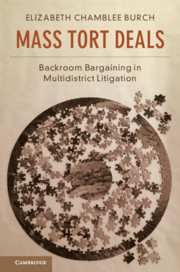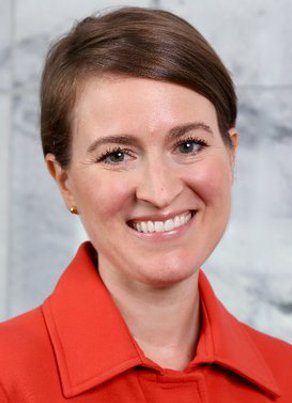Xiaofan Zhao(1) | Oran R. Young(2) | YeQi(1,5) | Dan Guttman(3,4)
Abstract
At the close of the last millennium, prominent thinkers projected that the political systems of leading economies would converge during the coming years. Yet, research has shown that China and the United States have developed distinctive institutionalized governance processes (IGPs) to address environmental issues. Can these distinctive processes persist in turbulent times? In reality, the two countries seem to be decoupling in their economic ties and diverging in political pursuit. Under the current circumstances, what can we say about the ability of the two systems to meet emerging environmental challenges of the 21st century? We argue that neither system is likely to experience fundamental change during the foreseeable future. Current developments are highlighting differences between goal-based governance strategies prominent in China and the rule-based strategies of the United States. As the urgency of solving transcendent problems like climate change rises and political tensions grow, it is essential to work with divergent systems to address common problems.
Outline
1 | INSTITUTIONALIZED GOVERNANCE PROCESSES IN CHINA AND THE UNITED STATES
2 | THE POWER OF INSTITUTIONALIZED GOVERNANCE PROCESSES
2.1 | China: The Xi administration doubles down on dominant environmental governance processes, while there is a parallel movement toward “socialist rule of law with Chinese characteristics”
2.2 | United States: Executive authority is not a substitute for law-centered practices; an emerging response features court action to reinterpret existing laws and citizen action to promote a “Green New Deal”
3 | GOAL-BASED AND RULE-BASED GOVERNANCE STRATEGIES IN CHINA AND THE UNITED STATES
3.1 | China: Hitting the targets
3.2 | United States: Making and implementing the rules
4 | STRENGTHS AND WEAKNESSES OF IGPS IN CHINA AND THE UNITED STATES
5 | CONCLUSIONS
__________________
Heading Footnotes:
1. School of Public Policy and Management, Tsinghua University, Beijing, China
2. Bren School of Environmental Science and Management, University of California (Santa Barbara), Santa Barbara, California, USA 3School of Law, Tianjin University, Tianjin, China
4. Institute of Global Public Policy, Fudan University, Shanghai, China
5. Division of Public Policy and Institute for Public Policy, Hong Kong University of Science and Technology, Kowloon, Hong Kong
The entire article may be found here and may be subject to a subscription or fee-based download.
 In 1965, Ralph Nader published
In 1965, Ralph Nader published  The system that Burch writes about had its origins in the early 1960s, when the federal courts were flooded with nearly 2,000 lawsuits stemming from a nationwide conspiracy to fix the prices of equipment used in the transmission of electricity. With guidance from Chief Justice Earl Warren, who created a Coordinating Committee of Multidistrict Litigation, a process was created to drive efficiencies in the litigation of these cases. The work of Warren and the committee’s chair, Alfred P. Murrah—then Chief Judge of the Tenth Circuit—paved the way for the passage of the MDL statute, 28 U.S.C. § 1407, in 1968. That statute provides for the coordination for pretrial purposes of civil actions involving “one or more common questions of fact.” Cases filed anywhere in the federal court system can be transferred to a single district for pretrial purposes. The MDL statute is short and—in contrast to Federal Rule of Civil Procedure 23, which addresses class actions—provides no standards for the appointment of counsel, class representatives, or for the approval of settlements.
The system that Burch writes about had its origins in the early 1960s, when the federal courts were flooded with nearly 2,000 lawsuits stemming from a nationwide conspiracy to fix the prices of equipment used in the transmission of electricity. With guidance from Chief Justice Earl Warren, who created a Coordinating Committee of Multidistrict Litigation, a process was created to drive efficiencies in the litigation of these cases. The work of Warren and the committee’s chair, Alfred P. Murrah—then Chief Judge of the Tenth Circuit—paved the way for the passage of the MDL statute, 28 U.S.C. § 1407, in 1968. That statute provides for the coordination for pretrial purposes of civil actions involving “one or more common questions of fact.” Cases filed anywhere in the federal court system can be transferred to a single district for pretrial purposes. The MDL statute is short and—in contrast to Federal Rule of Civil Procedure 23, which addresses class actions—provides no standards for the appointment of counsel, class representatives, or for the approval of settlements. The problem is the classic one: rules and transparency. There were no clear rules with respect to who is assigned an MDL. There is no blind draw, no concrete set of procedures. After I complained about the asbestos MDL shortly after I got on the bench—late 1990s—I was never assigned a case again. My complaint was that the MDL judge, Judge [Charles] Weiner of Philadelphia, was simply dismissing the cases “subject to their being reopened by motion.” The dismissals were contrived, done for the purpose of showing that the cases were moving. I finally got an MDL when Judge Robert Keeton died and my court assigned me to one that had been assigned to him. In the last year I was on the bench, I drew a civil rights case that was headed for the MDL court. My case was the first filed, a second was in Chicago, a third in San Francisco. All of us were up to date, willing to take on the case. It was assigned to neither of us; it went to a judge in Memphis who was on the committee.
The problem is the classic one: rules and transparency. There were no clear rules with respect to who is assigned an MDL. There is no blind draw, no concrete set of procedures. After I complained about the asbestos MDL shortly after I got on the bench—late 1990s—I was never assigned a case again. My complaint was that the MDL judge, Judge [Charles] Weiner of Philadelphia, was simply dismissing the cases “subject to their being reopened by motion.” The dismissals were contrived, done for the purpose of showing that the cases were moving. I finally got an MDL when Judge Robert Keeton died and my court assigned me to one that had been assigned to him. In the last year I was on the bench, I drew a civil rights case that was headed for the MDL court. My case was the first filed, a second was in Chicago, a third in San Francisco. All of us were up to date, willing to take on the case. It was assigned to neither of us; it went to a judge in Memphis who was on the committee.